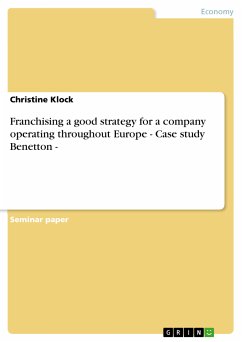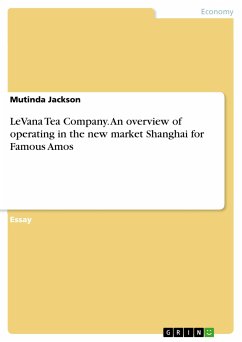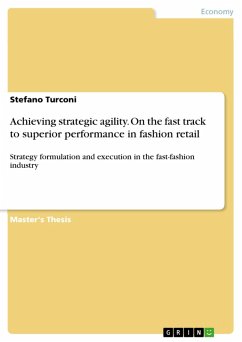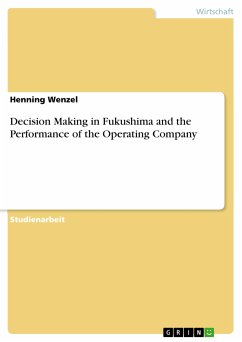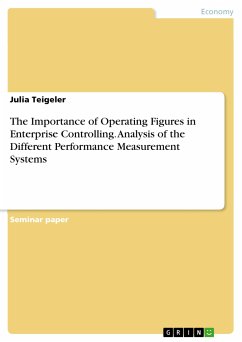Seminar paper from the year 2004 in the subject Business economics - Business Management, Corporate Governance, grade: 1,0 (A), University of Abertay Dundee, language: English, abstract: The purpose of this dissertation is to focus on franchising and to examine, if franchising is a good strategy for a company operating throughout Europe. In order to find an answer to this question further sub-tasks have to be researched. It will identify the characteristics of the franchise system and its advantages and disadvantages. Furthermore, why franchising is a useful hybrid organisational form for organisations to entry, be in business and to expand without enormous financial resources. Moreover, criteria in terms of transaction costs and resource scarcity will be explained. Once a company decides to go abroad and to target a certain European country, it has to develop and determine a strategy to enter the new market. There are several methods a company can use, for example indirect, exporting, direct exporting, licensing, franchising, joint ventures, direct investment and informal networks. Considering as a case study the corporate strategy of the Italian company Benetton, it will be analysed, if franchising is a successful mode to be used in business and to expand throughout Europe. Here is to be added that the analysis of the franchise system of Benetton will occur exclusively through the selection of the most important characteristics of a franchising strategy highlighted in chapter three. An extension of this selection would go beyond the scope of this project. The dissertation consists of (including this introduction chapter one) six chapters. Chapter two encompasses the theoretical framework. Here, agency theory and transaction costs analysis will be explained. The agency theory will be used to explain the business relationship between franchisor and franchisee. Coase developed in 1937 the transaction costs analysis which was further developed by Williamson (Williamson and Masten 1999, p.181), however, this approach could explain the importance for organisations to find the suitable coordination structures, whether be it vertical integration, non-vertical integration, or a hybrid form that includes elements of both. Furthermore, the agency theory and the transaction costs analysis will be applied to franchising. Accordingly, franchising as a hybrid organisational form will be explained in detail. In chapter three the trend of franchising in Europe will be analysed and the international franchise concept with its advantages and disadvantages will be explained. This involves the master franchising.
Dieser Download kann aus rechtlichen Gründen nur mit Rechnungsadresse in A, B, BG, CY, CZ, D, DK, EW, E, FIN, F, GR, HR, H, IRL, I, LT, L, LR, M, NL, PL, P, R, S, SLO, SK ausgeliefert werden.

